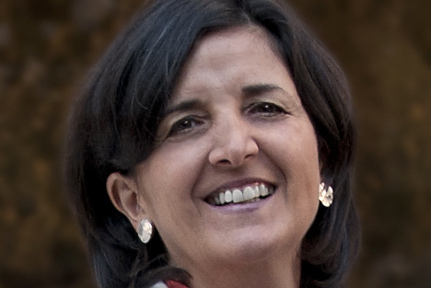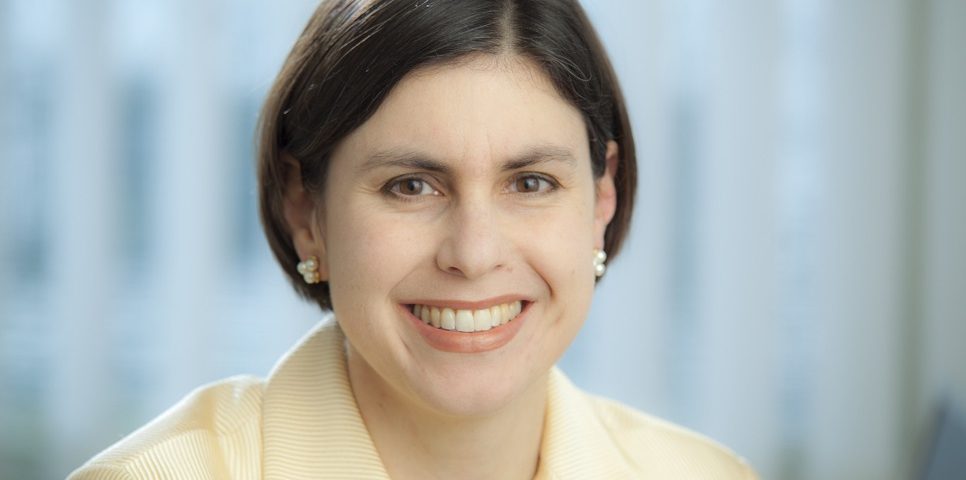
Special Focus: What new power means for fundraising
May 15, 2019
Expert view: What charities can learn from social enterprises about nurturing leadership talent
July 10, 2019Fundraising Europe interviews Becky Gilbert, director of development for ASSIST and CFRE board director, about the challenges of recruiting fundraisers and the importance of supporting their professional development.
[Fundraising Europe] Why do charities often find it challenging to attract fundraisers to the profession?
[Becky Gilbert] The biggest challenge is that many people still don’t know it’s a job or that there are career prospects in fundraising. It’s a relatively young profession; people tend to know how to become a teacher, a doctor or lawyer, but not how to become a fundraiser, what skills they will need and where it might lead.
When students realise what is involved, they can get really excited about it. Charities and professional associations need to communicate how important and exciting fundraising is, how rewarding it can be and that there are a range of career paths. Plus, fundraising doesn’t always have the best press, so we need to work even harder to get that message across and establish that there are some fantastic careers in the field.
At the same time, we need to recognise that not everyone is cut out to be a fundraiser. We need to make it clear what the job involves, that it will inevitably involve handling rejection and we need to attract people that are not just impassioned by the cause, but those that can handle the highs and lows of life as a fundraiser. It can be an extremely challenging job.
How important is the cause in recruiting fundraisers?
I do think the cause is key. It’s a profession that is driven by intrinsic motivation and, if the causes is one that potential fundraisers are not so engaged with the chances are that you might find it harder to attract them to the role and that they, in turn, might find it more difficult to raise funds. Having said that, the skills involved to be a good fundraiser are applicable regardless of the cause.
Fundraising takes a really interesting mix of soft skills and technical skills, and many will rise to the challenge of working with a cause that they didn’t immediately identify with.
Do fundraisers need to have qualifications?
While learned experience is highly valued – particularly when it comes to knowing how to handle the pressures of the job, how to progress fundraising conversations in a range of scenarios, ethical issues, mission creep and personnel management – qualifications are becoming increasingly important. They cover a broad base of knowledge, helping people develop the specific skills and knowledge base they will need for the job.
Fundraising is changing all the time and this means that the demands of the job will shift. As fundraising diversifies and more channels are developed, new skills like digital are becoming more important. Training can help fundraisers meet those needs and they can also open them up to different roles within the organisation, such as major gifts.
Through EFA’s Certification programme, we have seen real growth in the demand for qualifications over the past decade or so, with 5,000 fundraisers now having a recognised fundraising qualification across 11 European nations. Employers increasingly look for fundraisers that have taken the step to achieve a specific fundraising qualification, giving them a sense of how engaged and committed the individual is to the profession. From an employer’s perspective, gaining a qualification can be extremely powerful not only in increasing their ability to do the job, but in connecting individuals more closely with their job.
How can charities support fundraisers’ development, encouraging them to stay on within the organisation?
This is more important than ever. Unemployment is at a record low (certainly in Germany) and this can make it all the more difficult to attract staff. Every charity needs to ask: How can we attract staff? What can we do to keep them? How can we help them develop the skillset they need?
While we can’t offer the highest salaries, we need to do be best practice employers and explore what other industries are doing to help staff feel engaged and build job satisfaction.
Within the sector, we need to treat our people with the same respect as the constituents we serve, and this starts at the top of the organisation. There needs to be a clear vision about what is expected of those that work with the charity and a commitment to support people develop. We need to encourage people to continue their training and development, building on their abilities and ensuring they remain motivated, rather than losing themselves in the day to day requirements of life as a fundraiser. Only by taking this approach will we succeed in tackling the skills gap in senior fundraising positions and attracting new people into the profession.
How important is good leadership in helping fundraisers grow and develop
The most effective leaders will positively inspire and model the behaviours they expect to see in others. Having strong and clear leadership that encourages honest reflection and evaluation is key. This means putting in place a clear framework for review and future planning, discussing what works, what doesn’t, what is expected of each individual and how they will be evaluated.
And although there needs to be consistent support structures in place, we must recognise that different people will need different levels of support. Some will need the freedom to grow and find their own path, while others need more coaching and more feedback loops. Helping them progress is so important for job satisfaction, but so too is the right working environment; one which encourages positive feedback and non-financial benefits such as leave policies.
Of course, good leadership must start with the board and board members need to be 100% behind the executive team. This cements the leadership approach and shapes the culture in the organisation, so that everyone knows what’s expected, is encouraged to work collaboratively and is treated appropriately and respectfully. It’s a team sport after all! There are some people that will score all the goals, but everyone contributes.
Fundraising can be a stressful job. What can charities do to support fundraisers’ wellbeing and encourage retention?
Fundraising can be hugely rewarding, but being on the front line, fundraisers need to be able to handle rejection as well as challenging performance targets. This can bring high levels of stress and pressure. Charities need to develop a highly professional and specific approach to human resources, prioritising their people as much as they do their beneficiaries. This means making sure the internal channels of communication are open and that there is a culture of recognition and thanking, where people encourage and support each other, fostering a sense of wellbeing and community spirit.
Becky Gilbert CFRE
Based in Berlin, Becky’s fundraising career spans over 20 years, specialising in philanthropy, partnerships, major gift fundraising, and alumni relations. Director of development for ASSIST American Secondary Schools for International Students and Teachers, Becky previously held leadership positions with the European School of Management and Technology, the House of World Cultures, the Deutsches Museum, and the Smithsonian Institution. In 2014, Becky was elected to the board of directors for CFRE International. Becky also serves on EFA’s Certification Committee, having been associated with EFA since 2007, including 6 years of service on the board. Becky joined the German Fundraising Association as a member in 2001 and also served as an elected member of its board of directors for three terms. (Find out more about Becky on LinkedIn).



